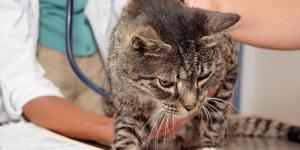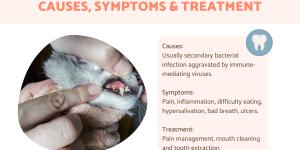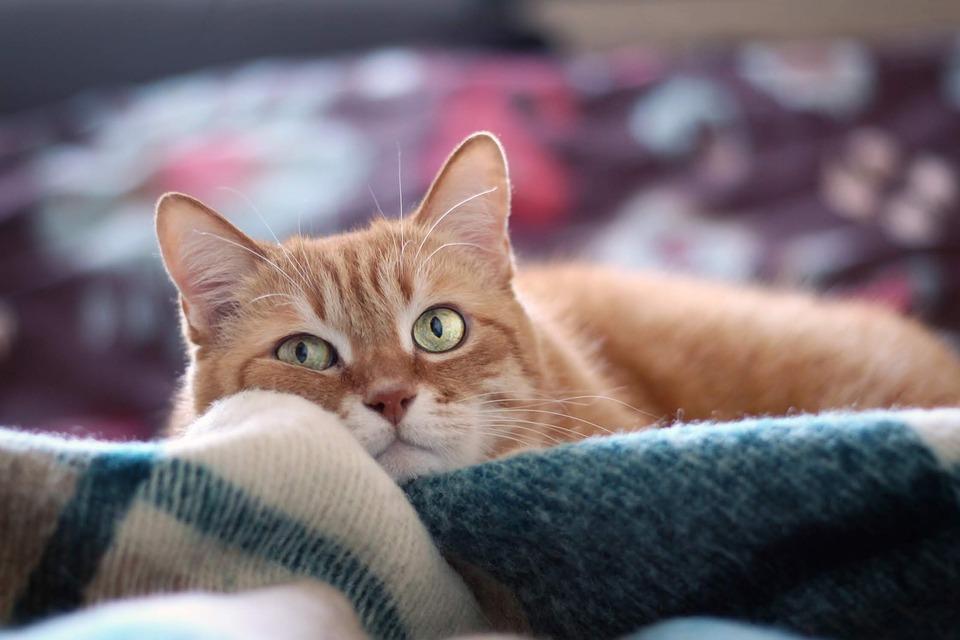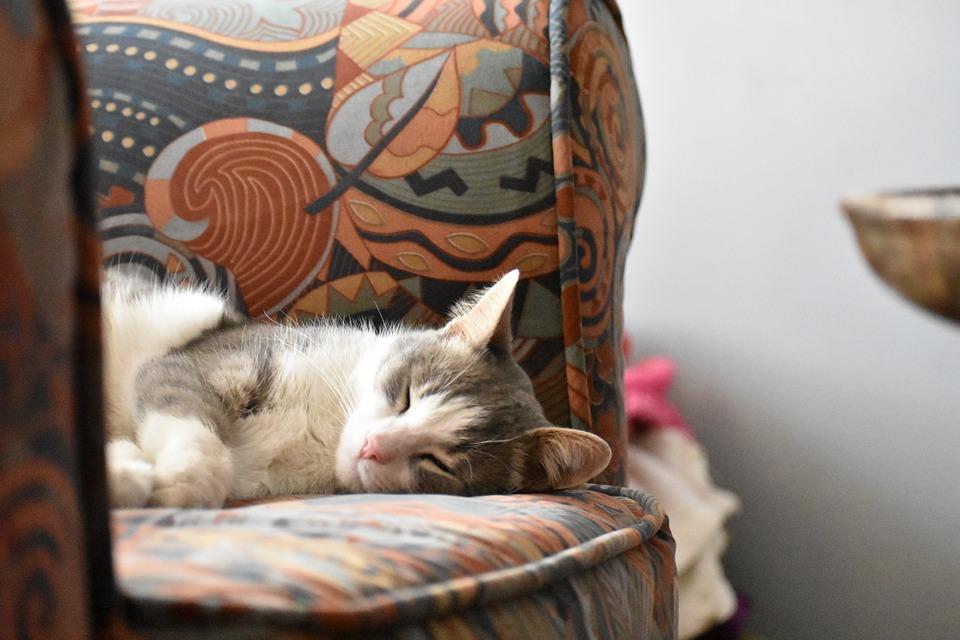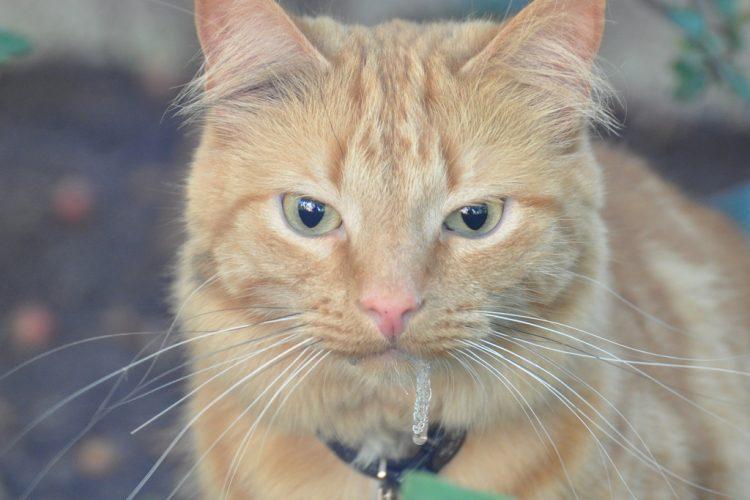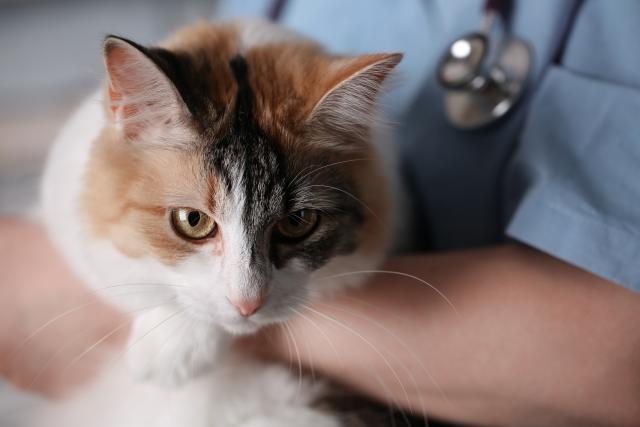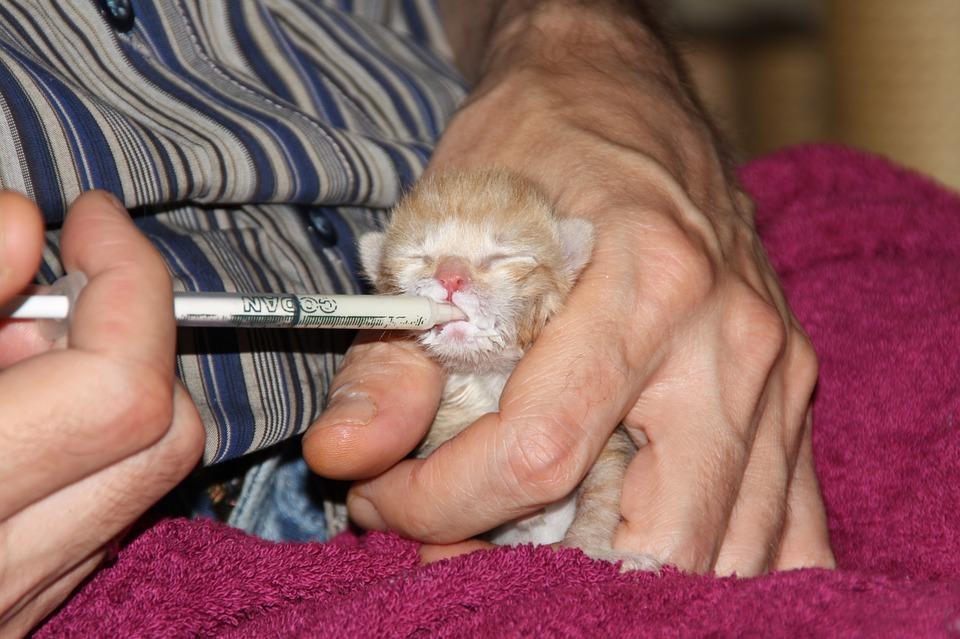Labored Breathing In Cats - Causes, Symptoms and Treatment



See files for Cats
Have you noticed that your cat is rapidly breathing while sleeping? How about your cat breathing fast after giving birth? Breathing difficulties in cats or rapid breathing in cats is ALWAYS a cause for concern. If your cat is breathing faster than normal or is experiencing shortness of breath (dyspnea), take note!
Heavy rapid breathing in cats can be caused by stress and anxiety or can be linked to more serious cat diseases. If your cat cannot breathe properly, make sure to take it to the vet IMMEDIATELY as its life could be at risk. For more about rapid breathing in cats, labored breathing in cats or cat breathing difficulties, keep reading here at AnimalWised.
Labored breathing in cats: symptoms
Labored, shortness of breath or difficulty breathing in cats, also known as dyspnea in cats, should be attended to immediately. Rapid breathing in cats symptoms include:
- Panting.
- Flared nostrils.
- Shaking.
- Weakness and lethargy.
- Excessive drooling.
- Visible chest movement.
- Labored breath.
- Neck and arms out stretching.
If your notice labored breathing in your cat, make sure to consult your veterinarian immediately! If your cat is struggling to breathe and is not treated accordingly in time, it could be fatal.
Rapid breathing in cats while sleeping
Before discussing the pathological causes behind labored breathing in cats while sleeping, we must differentiate cat sleep phases.
Cat sleeping phases are divided into alternating phases including REM (rapid eye movement). In this phase sometimes meowing and agitated breathing in cats is normal. If your cat, however, is breathing, wheezing or panting heavily while both asleep and awake, then concern should be taken.
In addition, it’s important to remember that it’s normal for your cat to breathe deeply after exercise. However, if this labored breathing does not remit veterinary consultation is necessary.

Labored breathing in cats: not eating or moving
If your cat is struggling to breath and is not eating or moving, it could be a sign of trauma in cats. A steep fall, collision or dog attack can result in internal injuries, which can affect your cats lung capacity. An internal hemorrhage, intense pain, fractures or pneumothorax constitute as emergencies that can cause fast, superficial abdominal breathing in cats.
Sometimes, when suffering from internal bleeding, you will notice that your cat breathes very quickly and/or vomits blood. A cat that does not receive enough oxygen will show bluish discoloration of its tissues (gums and skin), a phenomenon known as cyanosis.
In this above mentioned case, a cat will require immediate veterinary attention and may be hospitalized. A professional will likely stabilize the cat to perform the necessary tests, necessary to diagnose and treat the breathing accordingly.
For more, we recommend reading about what to do if your cat vomits.
Labored breathing in cats: hypersalivation
Is your cat breathing heavily and wheezing? Another life-threatening situation can occur when a cat suffers from poisoning. Symptoms of poisoning in cats include:
- Rapid breathing
- Hyper-salivation
- Wheezing
- Gagging and retching
- Neurological symptoms.
If your cat presents any of these above mentioned symptoms, take it to the veterinarian immediately. If you know which product has caused the poisoning, take it with you for your vet to analyze. Treatment for intoxication in cats includes fluid therapy and appropriate medication.
Prognosis depends on what toxic substance was ingested as well as the damaged it caused. For more details, we recommend reading our article poisoning cats: symptoms and first aid.

Cat panting and heavy breathing
In addition to the already mentioned physical causes, stress can also cause accelerated breathing in cats. If you notice that your cat is on alert with dilated pupils, salivating, swallowing repeatedly and running its tongue over his lips, there is a high chance that your cat is anxious and/or stressed.
The first thing you should do is give it space. If there is something noticeably specific which is causing your cat distress, such as loud noises or too many people, remove your cat from the situation immediately.
If the stimulus persists and the cat has no way of escaping it, it may also attack and become aggressive. Identify the trigger and avoid or remove it. If this trigger cannot be removed, adaption is the next step. For more, take a look at these 5 symptoms of stress in cats.
Labored breathing in cats: causes
Tachypnea, which refers to rapid breathing, can be caused by many things. These such breathing problems can be accompanied by coughing, hypersalivation, vomiting, retching, gasping, cyanosis, etc. A cat that is struggling to breathe may also adopt a characteristic posture with its neck extended. Other causes of tachypnea in cats include:
- Heatstroke.
- Feline asthma.
- Pneumonia.
- Heart diseases, including filariasis.
- Tumors.
- Airway obstruction (foreign bodies etc).
- Severe anemia.
- Hypoglycemia (low blood sugar levels).
- Peritonisis.
- Hyperthyroidism.
- Pleural effusion.
All require veterinary treatment. Once in a clinic, after stabilizing the cat if necessary, diagnostic tests such as blood and urine tests, x-rays, ultrasounds, etc. should be performed.

Rapid breathing in cats: after birth
Finally, although a cat may normally experience accelerated breathing and panting during labor, once finished giving birth, your cat’s breathing should return to normal.
If you notice that after giving birth your cat is breathing quickly, restless, anxious, shows lack of coordination when walking, falls, hypersalivates, has a fever and/or her mucous membranes seem pale; she may be suffering from eclampsia.
Eclampsia in cats is a disorder which is caused to hypocalcemia, a low level of calcium in the blood. This can appears during breastfeeding after delivery. Luckily, it is not a very common disorder in cats. If, however, it does occur, it is considered an emergency and the cat should be taken to the vet immediately.
If this does occur, it will be necessary to artificially feed the kittens or wean them. Once the mother recovers, the family MUST be reunited. And if confirmed by the vet, administering a calcium supplement may be necessary if she continues breastfeeding.

This article is purely informative. AnimalWised does not have the authority to prescribe any veterinary treatment or create a diagnosis. We invite you to take your pet to the veterinarian if they are suffering from any condition or pain.
If you want to read similar articles to Labored Breathing In Cats - Causes, Symptoms and Treatment, we recommend you visit our Other health problems category.


